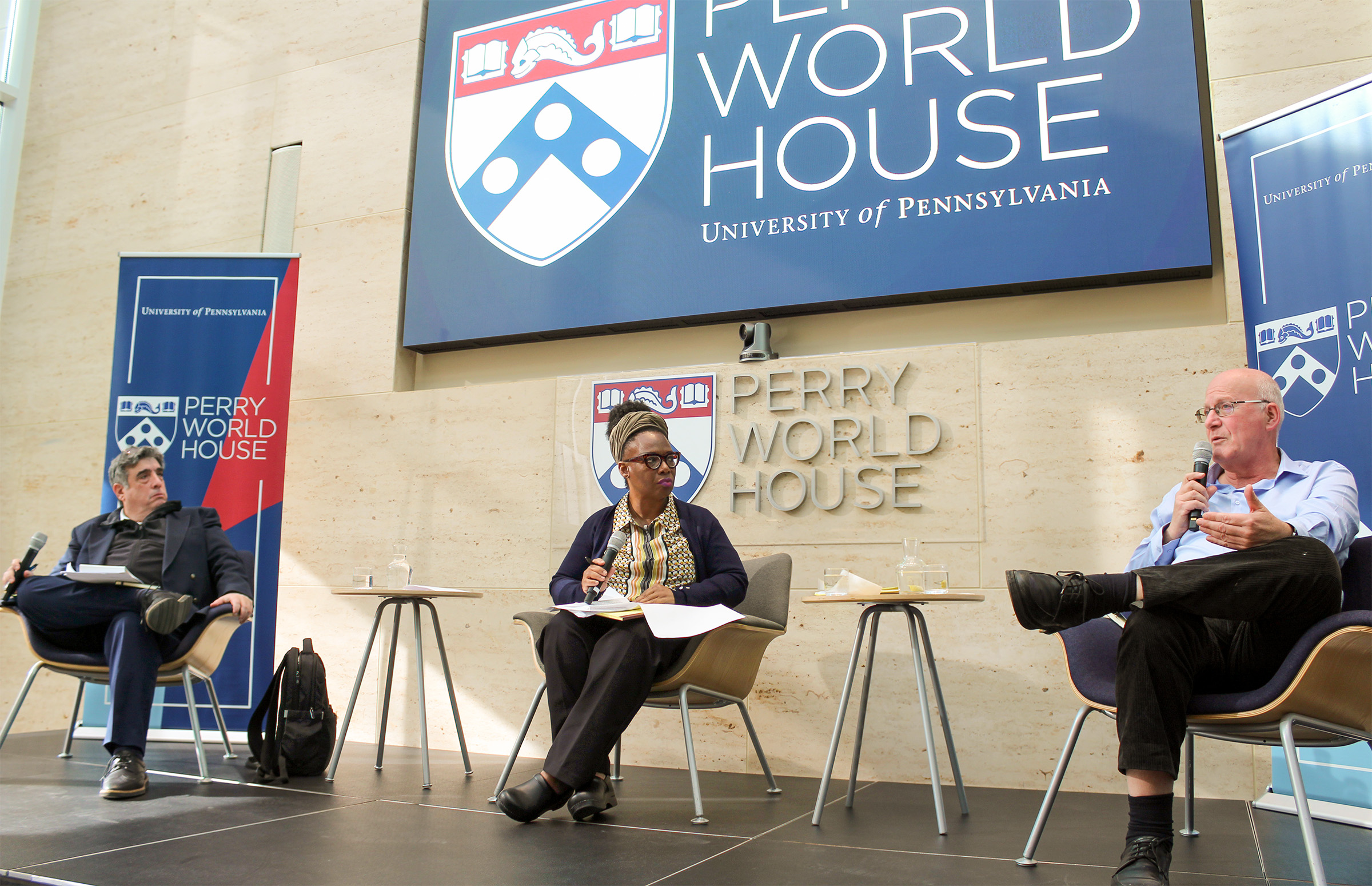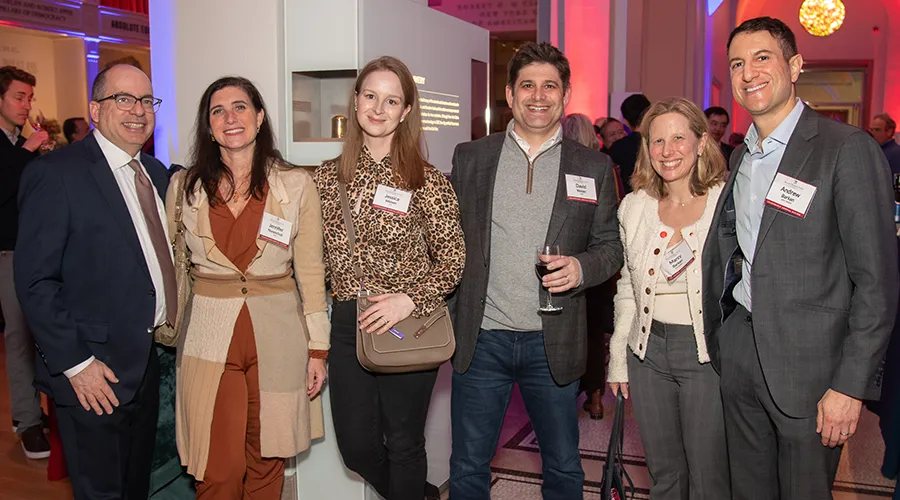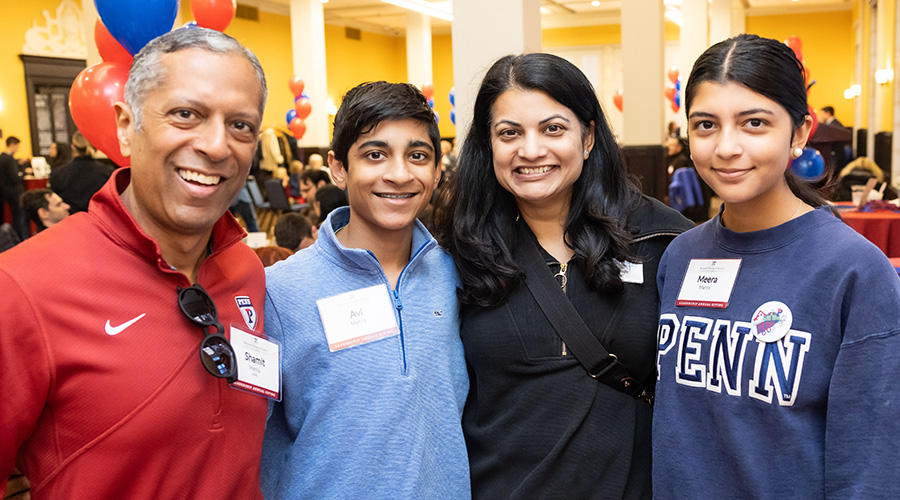The ability to engage civilly with those holding alternate opinions, especially when it comes to issues with ethical or societal consequences, are cornerstones of a healthy democracy.
Critical Conversations
A new event series at Perry World House provides a model for discussing complex or polarizing subjects
But in an age of social media and news programs that encourage contention instead of conversation and learning, even mild topics can spark heated exchanges.
Thanks to an anonymous gift, Perry World House recently launched the Critical Conversations event series. The aim is to demonstrate how opposing sides can discuss contentious topics of global importance, often with policy implications, relying on facts and research and without resorting to insensitive or inappropriate discourse.
“A great university is a place where students are exposed to different points of view and value civil disagreement,” says LaShawn R. Jefferson, Senior Executive Director of Perry World House. “Critical Conversations provides an opportunity for members of the Penn and local communities to remind ourselves that we can talk civilly about sensitive and consequential topics.”
These are issues that have policy solutions, and we all have a say in these, whether directly or through voting. The civility of this discourse and the facts that were used, as well as the kindness and consideration that we saw, provide a model way of interacting with people and with ideas.”LaShawn R. Jefferson, Senior Executive Director of Perry World House
The inaugural Critical Conversation, “Can Reparations Redress the Harms of Colonization and Slavery?”, was held on March 29. The conversation between Jeremy Black, Emeritus Professor of History at the University of Exeter, and Jeremy Sarkin, Distinguished Research Professor of Law at Nova University Lisbon, was moderated by DeNeen Brown, Associate Professor in the Philip Merrill College of Journalism at the University of Maryland and an award-winning staff writer for The Washington Post.
The global span and contemporary relevance of the subject reflect Perry World House’s mission to bring academic knowledge to bear on pressing policy challenges facing the world. Over an hour, Brown led Black and Sarkin through probing questions on how to define reparations, historical and contemporary examples, and how to delineate which communities to redress. The conversation drew connections to a wide range of subjects, including climate change, wartime atrocities, and medieval justice.

As moderator, Brown emphasized that each speaker should respond to each other’s points in good faith. Indeed, each speaker prioritized finding points of agreement regarding their examples and reasoning, while thoughtfully articulating dissenting points of consideration.
A signature of the series is gauging whether audiences are moved by what they hear. Before the conversation began, the titular question was posed in an online poll, which was repeated at the end of the event. While the audience was split 50-50 before the conversation, the concluding poll saw 71 percent in favor of reparations. “How you feel about this issue really matters to us,” said Jefferson when introducing the poll. “That’s why we’re having this conversation.”
For Sarkin, who has represented the Herero people of Namibia in seeking reparations from Germany for an early 20th-century genocide, the forum reflected a university’s mission of advancing education and promoting civic awareness. “In U.S. institutions, there is a lot of criticism that one side takes over and doesn’t allow the other side to participate,” he says. “Critical discussion is fundamental to growing people’s minds and understanding, but it seems like we’re missing that in such a climate of polarization.”
Black noted that universities have a unique platform to engage communities with topics of global importance. “One of our challenges today is how to reach out to a broader audience. In the 19th century, you would have debates about weighty subjects, like abolition, in a setting like a church, and they anticipated a very large gathering,” he says. “Universities like Penn, and places like Perry World House, are ideal places to convene people and to disseminate these kinds of programs to a wider audience.”
Critical Conversations are free and open to students and the public, such as visitors like Lamarr Kendrick. “I found it valuable to consider how reparations might serve not just as redress, but as a deterrent for future atrocities, which is relevant to events transpiring around the world today,” Kendrick says. “I’ve been coming to Penn events for almost 25 years as part of my own lifelong learning. Events like Critical Conversations can provide a meaningful way for Penn to engage with local leaders, who can bring the value of these discussions to their communities.”






